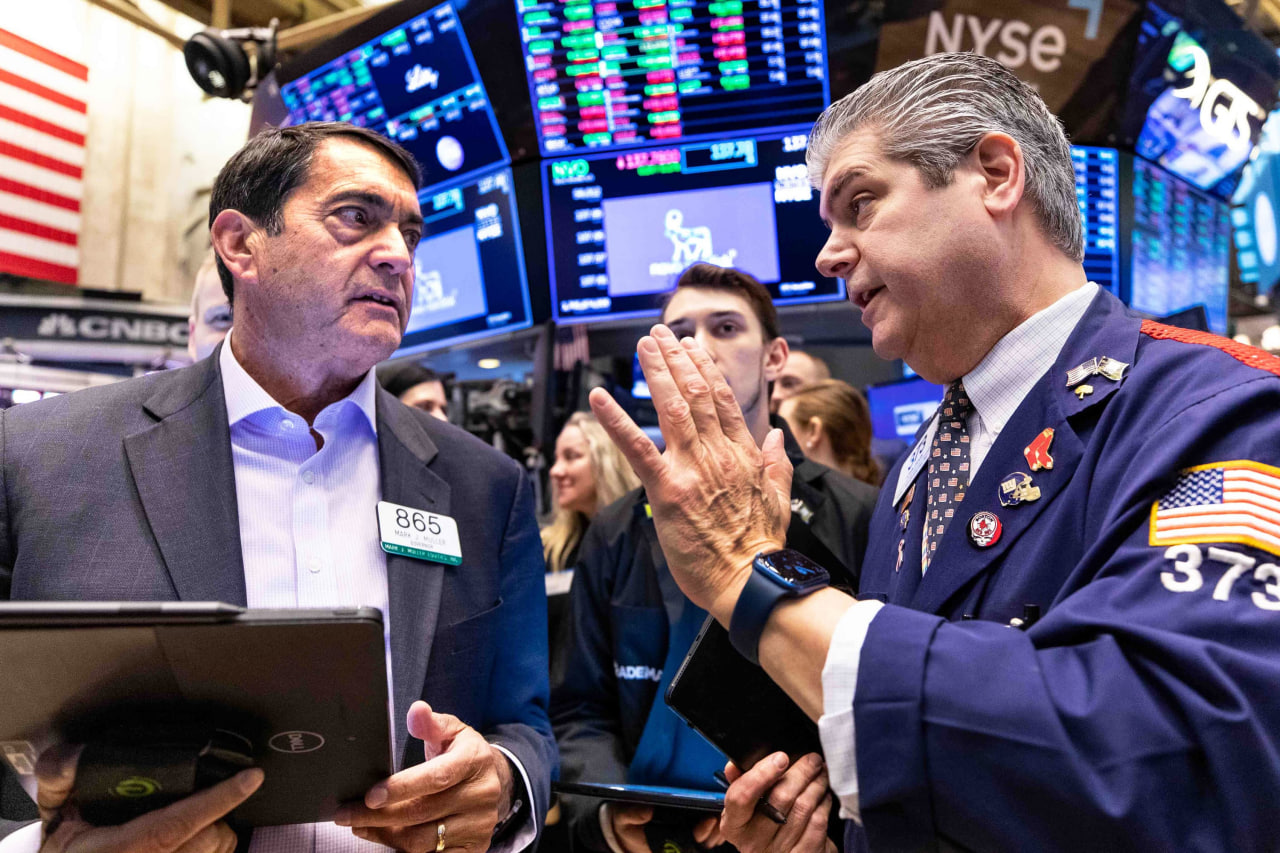Germany's Economic Woes: A Deep Dive into the 2023 Downturn and Beyond
Meta Description: Germany's economy is facing a significant downturn. This in-depth analysis explores the causes, consequences, and potential solutions to the crisis, including the impact of geopolitical factors and the upcoming elections. #GermanEconomy #EconomicCrisis #Europe #Geopolitics #Germany
Are you concerned about the declining German economy? The headlines scream of record lows, shrinking growth, and political instability. But the truth is far more nuanced than a simple news blurb. It's a complex web of interconnected factors – geopolitical tensions, energy crises, internal political squabbles, and lingering effects of the pandemic – all contributing to a concerning economic slowdown. This isn't just another news story; it's a potential turning point for Europe's economic powerhouse. We'll dissect the current situation, explore its historical context, analyze the key players, and offer a glimpse into what the future might hold for Germany and its global impact. Forget dry statistics; we’ll unveil the human stories behind the numbers, exploring how ordinary Germans are experiencing this economic shift. Prepare for an in-depth, insightful analysis that goes beyond the headlines, offering a perspective grounded in robust research and informed by expert opinions, making sense of the current economic climate in Germany and its implications for the world. This isn't just about numbers; it's about the people, their livelihoods, their hopes, and their fears. Buckle up, because we're about to embark on a journey into the heart of Germany's economic crisis!
German Economic Index Plummets: A Sign of Deeper Troubles?
The recent plunge in Germany's economic indicators, reaching levels unseen since May 2020, paints a worrying picture. The Munich-based Ifo Institute’s December business climate index plummeted to 84.7 points, down from 85.6 in November. This isn't just a blip; it's a trend reflecting a deeper malaise within the German economy. The Ifo Institute, based on surveys of approximately 9,000 German businesses, paints a stark image: while businesses report slight improvements in the current economic situation, their outlook for the future is bleak. This pessimism is particularly pronounced in the manufacturing sector – the backbone of the German economy – where order books are dwindling, production is being slashed, and the overall sentiment is far from optimistic. Similar trends are emerging in the service and trade sectors, indicating a widespread loss of confidence.
This isn't just a matter of numbers on a spreadsheet; it represents real-world consequences for millions of Germans. Job security is on many minds, anxieties are rising, and the uncertainty is palpable. The human cost of this economic downturn should not be overlooked.
Furthermore, the German government's recent downgrade of the 2024 economic growth forecast from a meager 0.3% to a negative -0.2% signals a potential second consecutive year of recession. This is serious stuff, folks. It's not just a minor setback; it's a potential long-term economic challenge.
The Manufacturing Sector: A Case Study in Decline
The manufacturing sector's struggles are particularly telling. Reduced orders, coupled with a decline in production, signify a significant downturn. Manufacturers, the heart of Germany's industrial prowess, are facing headwinds they haven't encountered in years. This isn't just about cutting costs; it's about survival in a rapidly changing global landscape. Analysts like Philipp Schoermeier of KfW (Kreditanstalt für Wiederaufbau) note that the lack of perceived improvement is leading to an increased likelihood of job cuts. It's a vicious cycle: decreasing demand leads to production cuts, which in turn leads to potential layoffs, further depressing consumer confidence and perpetuating the downward spiral. This is a critical point impacting not only the individual workers but also the broader economy.
Geopolitical Headwinds: Trump's Shadow and International Uncertainty
The situation is further complicated by external factors. The looming possibility of a Donald Trump presidency in the US casts a long shadow. The threat of increased tariffs, particularly damaging to an already struggling German manufacturing sector, is a real concern. Even beyond trade wars, the potential for significant changes in US economic policy under a Republican administration, such as tax cuts and deregulation, could negatively impact Germany's competitiveness on the global stage. This highlights the interconnectedness of the global economy and the fragility of individual nations within it. Furthermore, internal political instability within France and elsewhere in Europe adds to the overall uncertainty, making it more difficult for businesses to plan for the future and invest in growth. This is not simply an issue of economics; it is a geopolitical challenge with far-reaching ramifications.
The Role of the European Central Bank (ECB)
The ECB's attempts to stimulate economic growth through interest rate cuts have been met with skepticism. While interest rate adjustments can provide a short-term boost, many economists question whether monetary policy alone can effectively address the structural issues plaguing the German economy. The question remains: is monetary policy the appropriate tool for this particular crisis, or are deeper structural reforms necessary? This is a debate with significant implications for the effectiveness of future policy responses.
A Glimmer of Hope: Investor Confidence and Potential Policy Changes
Despite the grim picture, there are some signs of hope. The German economic sentiment index, published by the ifo Institute, actually showed an improvement in December, suggesting a possible increase in investor confidence. This could be attributed to expectations of pro-business policies from a new government and the possibility of further ECB rate cuts. However, it's crucial to be cautious about interpreting such short-term fluctuations as a definitive turnaround. It is too early to celebrate. Sustained improvement requires fundamental and long-lasting changes.
The Political Landscape: A Looming Election and Uncertainty
Germany's political scene adds another layer of complexity. The recent collapse of the three-party coalition government and the subsequent vote of no confidence against Chancellor Scholz have created further uncertainty. The upcoming elections will be crucial in shaping the future direction of the German economy. The political uncertainty itself is a deterrent for investment and economic growth. The formation of a new government and its economic policies will be critical in determining the trajectory of the German economy in the coming years. This political instability underlines how intricately linked economic and political stability are.
Frequently Asked Questions (FAQ)
Q1: How severe is the German economic downturn?
A1: The downturn is significant, with key economic indicators pointing towards a potential recession. While the situation isn't catastrophic, it necessitates serious attention and proactive measures.
Q2: What are the main causes of the economic downturn?
A2: The causes are multifaceted and include geopolitical uncertainty (e.g., the potential for increased US tariffs), the energy crisis, the lingering effects of the pandemic, and internal political instability.
Q3: Will the ECB's interest rate cuts be enough to address the problem?
A3: Many economists doubt that monetary policy alone can solve the underlying structural issues. Further measures like structural reforms and investment in new technologies might be necessary.
Q4: What is the impact on the average German citizen?
A4: The downturn is affecting citizens through potential job losses, increased uncertainty, and potentially reduced consumer spending power. The human cost is substantial.
Q5: What are the prospects for the German economy in 2024 and beyond?
A5: The outlook depends heavily on the formation of a stable government and the implementation of effective economic policies. The global economic environment will also play a significant role.
Q6: What can be done to improve the situation?
A6: A multi-pronged approach is needed, involving structural reforms, investments in innovation and sustainable energy, and possibly fiscal stimuli to boost demand. Addressing the political instability is also crucial.
Conclusion: Navigating Uncertainty
Germany's economic challenges are significant but not insurmountable. Addressing the crisis requires a concerted effort from the government, the ECB, businesses, and citizens. Proactive policy measures, a focus on long-term sustainable growth, and a collaborative approach are crucial for navigating this economic storm. The road to recovery will be long and arduous, but with careful planning and decisive action, Germany can once again assert its position as a global economic leader. The coming months and years will be critical in shaping Germany's economic destiny, and the world will be watching closely.



